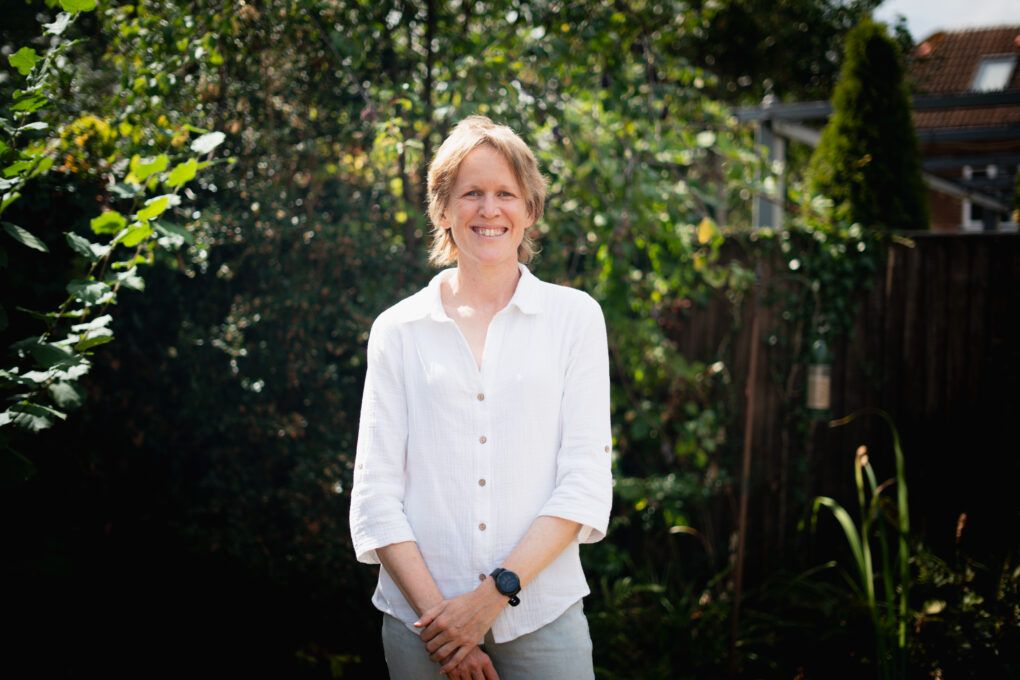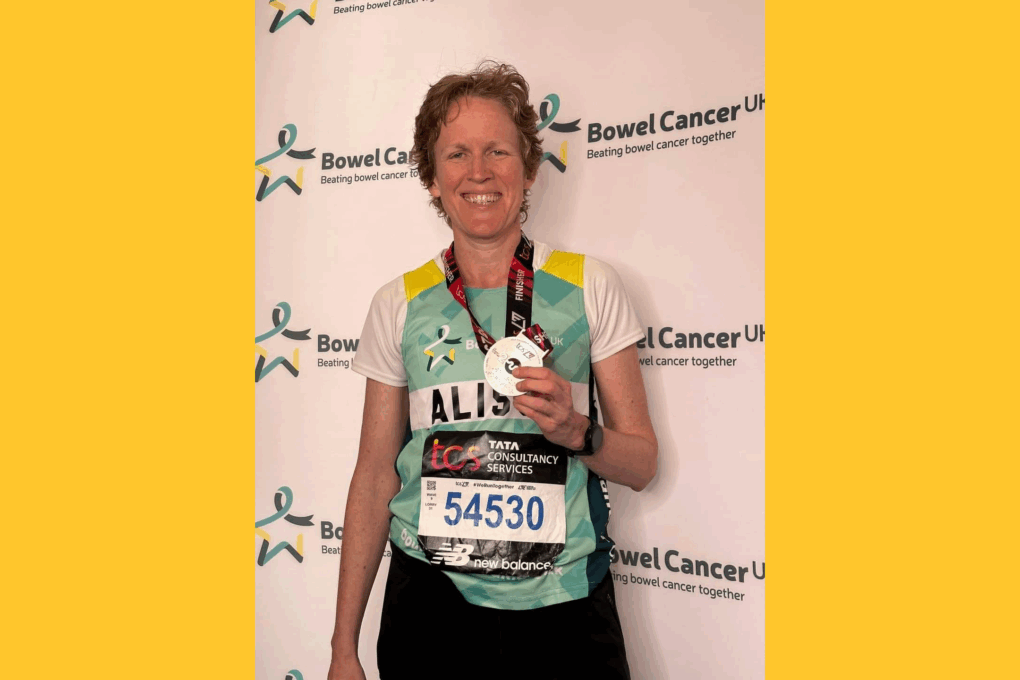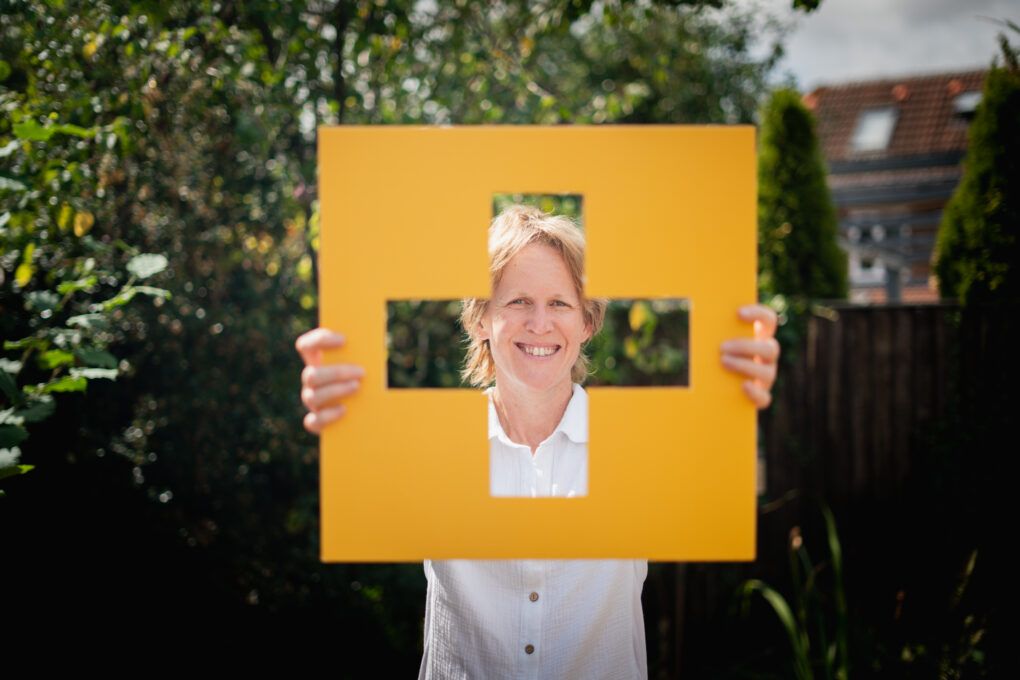‘I ran the London Marathon for charity after losing my childhood friend to bowel cancer. Two months later, I was diagnosed with the disease’

Bowel cancer in younger adults is becoming more common around the world, with some of the steepest increases seen close to home.
According to Cancer Research, 1 in every 20 bowel cancer cases in the UK is now happening in people under the age of 50.
Our Future Health volunteer Alison Crooks, 49, from Southampton, was one of those people.
In 2022, Alison’s close friend Sharon passed away from bowel cancer. In April 2023, to honour her memory, Alison ran the London Marathon, raising almost £7,000 for Bowel Cancer UK.
Two months later, Alison was shocked to be diagnosed with bowel cancer herself.
‘I spoke to my GP about runner’s tummy’

“Sharon and I had been friends for 30 years, since we were teenagers and worked part-time jobs together,” Alison says.
“In March 2020, she was rushed to hospital with severe pain and had emergency surgery. She woke up with a stoma bag and a bowel cancer diagnosis. Sharon fought for 2 years, but sadly passed away just before her 50th birthday.”
In the aftermath of Sharon’s death, Alison needed a focus – to do something for her friend. She contacted Bowel Cancer UK for a place in the 2023 London Marathon.
“I trained really hard, though I noticed my tummy was a bit off, and was going to the loo more frequently,” Alison says. “I mentioned ‘runner’s tummy’ to my GP, and she insisted on a test to check for hidden blood in my stool.
“I ran the marathon in April 2023, and it was euphoric. Two days later, my GP called and told me that my test was showing traces of blood. I was referred for a colonoscopy, and the doctor found a narrowing in my bowel.
“They didn’t say ‘cancer’ outright but were honest and told me that it didn’t look good. After a biopsy and CT scan, I was diagnosed in June 2023 with bowel cancer. I was 47, fit and healthy. It was a total shock.”
‘Why me?’
“It felt surreal. I’d just run a marathon for bowel cancer, and now I had it myself. At first, I remember asking, why me? But then I thought, if someone is diagnosed with cancer every 90 seconds in the UK, why not me?” says Alison.
While the causes of most bowel cancers are still unknown, some factors are known to increase the risk of getting it. These include being over 50, having a strong family history of bowel cancer, and having unhealthy lifestyle habits.
“None of these factors applied to me,” says Alison. “But my surgeon told me younger people are getting bowel cancer more often now, and we don’t yet know why. That’s why research programmes like Our Future Health are needed.”
Alison hopes Our Future Health helps lead to earlier screening and more awareness about bowel cancer, particularly amongst younger people.
“This is absolutely critical, because the chance of survival for five years or more for those with stage four bowel cancer is 10%. However, if it is detected at stage one the chances become around 90%.”
Treatment, and getting the all-clear
Further biopsies showed Alison’s bowel cancer had spread to one lymph node, taking her to a stage 3 diagnosis.
“I was referred for surgery and chemotherapy. However, a blood test result beforehand discovered that the standard chemotherapy regimen, CAPOX, was not an option for me. That blood test wasn’t routine five years ago, and my oncologist said without it, CAPOX could’ve been fatal to me. I’m incredibly grateful, because this meant I was put onto the right treatment path much sooner than I would otherwise have been.
“My oncology team and my partner were brilliant throughout my treatment and got me through it. In December 2023, I was given the all-clear. The relief was enormous.
“At my 2-year check-up recently, the fear still lingered – they call it ‘scanxiety’ – but each all-clear feels like a gift. My partner and I always make travel plans as soon as I have the all-clear. I’ve even made it to two Glastonbury festivals, surviving the infamous long drop toilets!”
The importance of health research

Two years after overcoming her cancer, Alison got a letter in the post from Our Future Health.
“It was inviting me to become a volunteer. I signed up, because if I can help research, I want to. My case proves that lists of risk factors aren’t everything. What we really need is earlier testing and to remove the awkwardness around talking about our bowels.
“To this day I feel lucky that my GP knew my history – the recent loss of Sharon and the marathon – which I believe accelerated my diagnosis. But not everyone is so fortunate.
“Sharon sadly never made it to 50. I’m 49 now, and I’ll hit that milestone this year. Her story helped to save me. I hope sharing mine does the same for others.”

Let’s prevent disease together
By volunteering for Our Future Health, you can help health researchers discover new ways to prevent, detect and treat common conditions such as diabetes, cancer, heart disease, stroke and Alzheimer’s.